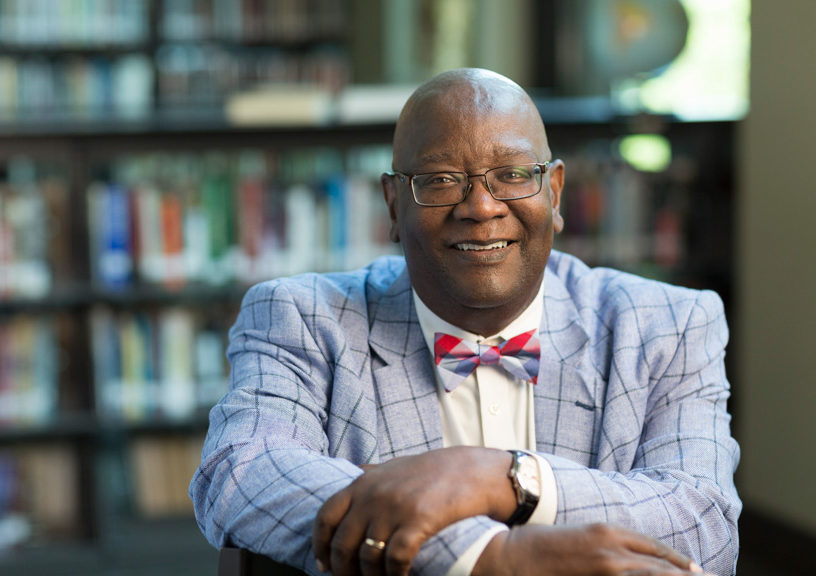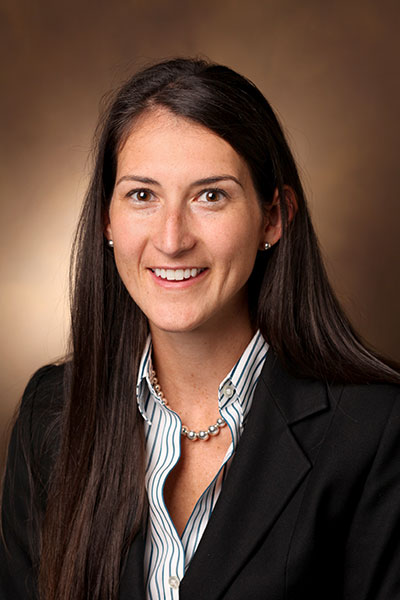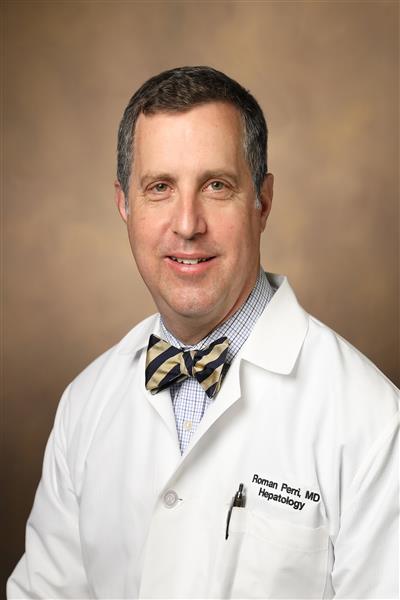A thank you to a transplant surgeon
His friends call him Curious George.
James George is a preacher, teacher and a student. He is studying for a master’s degree; he teaches a Biblical Israelite history class; and, in his spare time, draws house plans.
When a painful hereditary disease threatened to sideline his active retirement years, James underwent two organ transplants, 10 years apart.
Liver Transplant

Proficiency counts
James retired at age 52 after a career as a civil engineer for his state highway department, two years in the Army and 19 years in the Reserves, where he was a drill sergeant. Two years into retirement, he received his first of two transplants at Vanderbilt University Medical Center, a program he chose for this reason:
“Any time you do something over and over and over, you become proficient at it. I learned that in the Army, because they were repetitious in their training,” said James, a father and grandfather who lives in Brookport, Ill. “So Vanderbilt was the ideal place to go because they had done far more transplants than other places, and had some of the best doctors, perhaps in the world. Some of the nicest, too.”
James was 39 and on military maneuvers in Boise, Idaho, when he first fell ill. His blood pressure rose dramatically, and he was put on bed rest before being transported to a hospital.
The illness shortened his tour, as he returned to where he was living in Kentucky for further testing. There, he learned he had a condition that runs rampant in his family: polycystic kidney disease. The genetic disorder causes fluid-filled cysts to grow in the kidneys, which interferes with filtering waste from blood and can lead to kidney failure. But it also can affect other organs, particularly the liver. That’s where James experienced his most serious problem first. After living with the pain of the disease and its treatment, James received a liver transplant at Vanderbilt at age 54.
James saw photos of his cyst-covered liver, which was consumed beyond repair. “The liver only weighs about seven or eight pounds. I think mine, what they took out of me, was close to 50 pounds,” he said. “So that’d tell you how awkward I looked and how awkward I felt.”
Kidney function worsened despite a new liver
Though his liver transplant was successful, James’ kidney function continued to deteriorate, and he began dialysis, which he often attended with his mother. James’ mother, her sister and all four of James’ siblings also have polycystic kidney disease.
James’ dialysis lasted for almost five years, partly because a prostate cancer diagnosis interrupted his status on the transplant list. After cancer treatment was complete, James returned to Vanderbilt for a kidney transplant.
“Going through these transplants has made me a better person, not only physically, but mentally and spiritually.”
“It kind of felt like déjà vu when it happened again,” James said. “I wished I could have gotten it all done at one time, the liver and the kidney both at the same time. But my kidney was doing much better than the liver, so it wasn’t time for that transplant. That’s why it was about 10 years between surgeries. So I took extremely good care of myself so that I could prolong it as long as I could.”
Being 10 years older, recovery took longer, James said. But he now feels much better and can travel with his wife without having to find a dialysis center for treatments.
A thank you to a transplant surgeon
The transformation is a reward
Rachel Forbes, M.D., the Vanderbilt surgeon who transplanted James’ kidney, said that’s one of the things she likes most about her job.
“I like seeing the transformation in the patients. They go from this life on dialysis, which many describe as being very hard, to this transformation where they have a working organ and have their freedom back,” Dr. Forbes said. “It’s amazing to see that. It’s pretty exciting to basically be an instrument to allow them to achieve a more full life.”
Debra George, James’ wife of eight years, nervously waited as Dr. Forbes finished her work in the operating room that day, to hear word that James was all right.
Before surgery, he was having a difficult time, Debra said. “He had been waiting so long. He was having such a hard time with pain and getting discouraged.”
The care he received at Vanderbilt “has meant a new life,” Debra said. “He’s able to do things now that he couldn’t do before. We are able to go places and enjoy ourselves more.”
James is back to a full life, back in his studies and his church. He’s traveling again and aspires to get his Ph.D. after completing his master’s. He and his wife are grateful for the organ donor, Forbes’ skill, and the ongoing personalized care James receives with Vanderbilt’s Roman E. Perri, M.D.
“Going through these transplants and this agony of suffering has made me a better person, not only physically, but mentally and spiritually,” James said. “To weigh where my life might have been if I hadn’t have gone through this, I would prefer to go through it and be the better person."
Liver Transplant
Rachel C. ForbesMD, MBA, FACS
- Dialysis Access, Kidney and Pancreas Transplant, Laparoscopic and Robotic Donor Surgery, Pancreas Transplantation, Pediatric Kidney Transplant, Pediatric Surgery, Renal Transplantation
Roman E. PerriMD
- Gastroenterology, Gastroenterology, Hepatology and Nutrition, Hepatology and Liver Diseases, Liver Transplant

